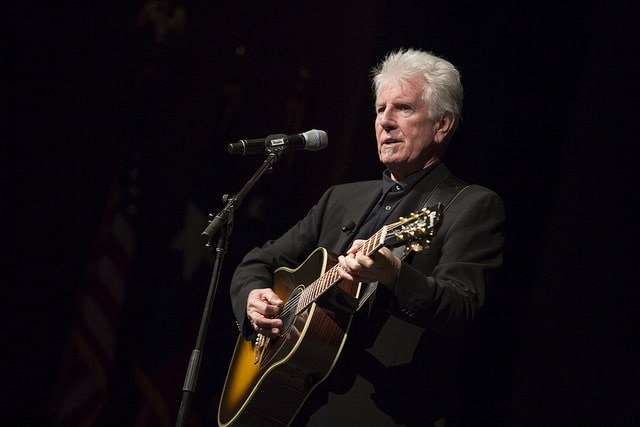
![]()
Graham Nash spoke out against the use of his song “Chicago” in an advertisement for an upcoming anti-vax rally being hosted by Robert F. Kennedy Jr’s organization in Washington D.C.
The 79-year-old rocker took to Instagram on Saturday to condemn the song’s inclusion at the event and threatened legal action against RFK Jr.’s organization:
“The use of my song ‘Chicago’ by Robert F. Kennedy, Jr.’s Children’s Health Defense movement in a video to promote his organization’s rally in Washington, D.C. tomorrow is not authorized and I am taking steps to cause the cessation of its use,” Nash wrote.
Nash continued, “I do not support [Kennedy’s] anti-vaccination position as the history of the efficacy of the Covid19 vaccines is well documented. When I wrote ‘We Can Change the World’ I did not expect that an institution such as this one that claims that it fights for individuals’ freedoms would so readily and recklessly infringe upon and, by its association with its cause, mischaracterize the intellectual property rights of a songwriter for its own purposes.”
Despite being a longtime advocate for public health programs since its founding in the mid-2010s, RFK Jr., who heads the Children’s Health Defense founded by his father, was an outspoken critic of the COVID-19 vaccine throughout the pandemic.
RFK Jr. was the subject of many headlines in recent months for repeatedly attacking Dr. Anthony Fauci for his “catastrophic mismanagement” of the pandemic. RFK Jr. has since spread unproven and false conspiracy theories about COVID-19 and the CDC, including that Fauci himself had invested with vaccine-manufacturer Moderna.
The upcoming Children’s Health Defense rally was scheduled under the banner “Defeat the Mandates: An American Homecoming”. According to the CHD website, the rally hopes “To stop the Covid vaccine mandates. To say never again to the lockdowns!”
Nash concluded his condemnation of the event and its use of his song saying: “I believe in science and facts, and do not support such blatant disregard for either, nor for my rights as a musician.”